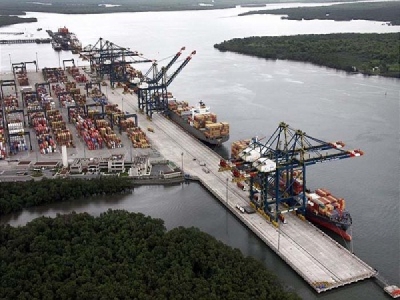
Posted on October 18, 2016
By Rob Ward, JOC.com
The most powerful port, shipping, and transportation industry groups in Brazil are banding together to pressure the government to reform the country’s port law that was passed in 2013.
The groups contend the law concentrates too much power in the central government, slowing decision-making and sowing uncertainty for domestic and international investors who are needed to upgrade and develop the country’s infrastructure.
Brazil is seeking buyers for more than 100 new port concessions valued at more than $3.1 billion. Because of a lack of investor interest, only six have been completed. Dozens of others have been delayed or aborted.
The transportation groups’ primary demand is that the government bring back the system that was in place before the 2013 law, when port councils, or CAPs, made key decisions on port strategy, investments, and dredging. CAPs were made up of members from every sector of the port community, including port authorities, shipping agents, shipowners, port operators, and dock workers.
After the port law created a centralized port ministry, which has since been subsumed by the department of transportation, the CAPs took on an advisory role with no real power. The makeup of CAPs also changed, with more government representatives or appointees representing more than half of their members.
“We must reduce bureaucracy and we need to have another look at CAP, perhaps taking it back to where it was in the past,” Murillo Barbosa, president of the Private Association of Private Ports, told JOC.com.
The groups that have formed a united front for change are the Brazilian Association of Port Terminals, the Brazilian Association of Container Terminals in Public Port Areas, the Brazilian Association of Liquid Terminals, the Brazilian Association of Terminals and Inland Bonded areas, the Terminal Association of Private Ports, and the National Federation of Port Operators.
The groups aim to present a list of amendments to the law by the end of November to Mauricio Quintella, minister for transport, ports, and civil aviation, and Dalberto Tokarski, the director general of Antaq, the government authority for waterborne transport and ports.
Wilen Manteli, head of Brazilian Association of Port Terminals, agrees that CAP should be brought back. He would also like to see a longer period for interested investors to respond to bids, reduced control over critical dredging by the central authorities, the scrapping of tariff rate caps, and the removal of a cap on port profits.
“The way we see it the port is a public service and very intrusive interference from the federal government paralyzes its activity,” Manteli said.
The struggles of numerous ports in Brazil to get dredging approved and started, even in emergencies, is an example of how centralized decision making has proved detrimental to Brazil’s ports.
Source: JOC.com





